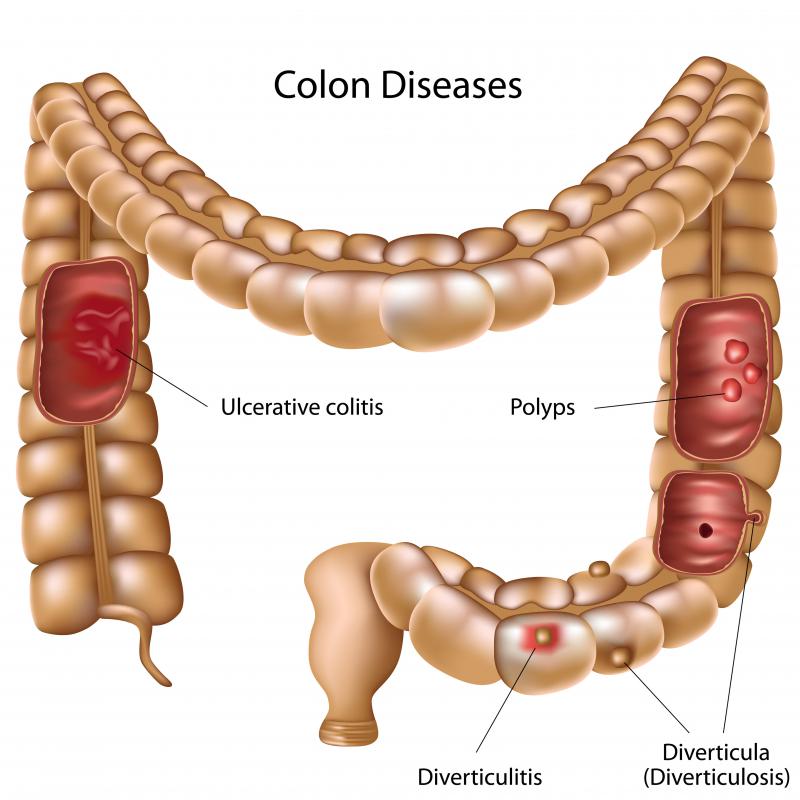At WiseGEEK, we're committed to delivering accurate, trustworthy information. Our expert-authored content is rigorously fact-checked and sourced from credible authorities. Discover how we uphold the highest standards in providing you with reliable knowledge.
What are the Different Types of Ulcerative Colitis Treatments?
Ulcerative colitis is a disease of the colon that can have a devastating effect on an individual’s life. While there is no cure for this condition, there are a number of ways to treat ulcerative colitis and allow sufferers to get on with life. Some of these different types of ulcerative colitis treatments include medication, diet, and sometimes surgery.
Among the different types of ulcerative colitis treatments, medication is often at the forefront. Drugs are helpful in managing symptoms as well as easing the inflammation that is inherent in a flare-up of the disease. One of the most recommended today is mesalamine. Available as a tablet as well as for use in suppositories and enemas, this medication is currently marked under several brand names, but is not available as a generic drug. Mesalamine can help calm the constant sense of urgency, while also helping to slow down the spasms that are common with all forms of colitis.

Corticosteriods are another example of the different types of ulcerative colitis treatments. Members of this drug family accomplish many of the same functions as mesalamine. Unlike mesalamine, corticosteroids tend to cause a number of side effects in many patients, including weight gain, high blood pressure, and a negative effect on blood glucose levels. Because of the potential side effects, many physicians will only resort to corticosteroids when the patient does not respond to other forms of treatment.

Along with anti-inflammatory drugs, different types of ulcerative colitis treatments include the use of immune system suppressors. While helping reduce inflammation, they also help to prevent the immune system from perceiving the colitis as an invading virus and attempting to break down the structure of the colon. As a result, the suppressors help to reduce spasms and also ease some of the urgency that may colitis patients experience constantly. Medications like cyclosporine and azathioprine are two examples.

Diet is also important when managing a current flare-up or in minimizing chances for another episode. Among the different types of ulcerative colitis treatments, making changes in how and when you eat can make a world of difference. For many, raw fruits and vegetables cause the pain to worsen. Others find that carbonated beverages, alcohol, or anything containing caffeine cause the alternating diarrhea and constipation to become worse.

Unfortunately, there are no specific dietary guidelines when it comes to ulcerative colitis. Some people cannot tolerate dairy products, while others find they help. Many people get some relief from the consumption of foods rich in soluble fiber, while others find that foods with insoluble fiber are more helpful. Some do very well by consuming several small meals a day, while others find that this approach makes no difference at all. Doctors usually provide very broad guidelines to patients, with the understanding that they can try different foods and identify what helps and what hurts.
The most severe of all the different types of ulcerative colitis treatments is surgical removal of the colon. This is only recommended when all the other forms of treatment have failed to provide relief. Because of the risk involved with this type of procedure, many doctors will explore all possible combinations of other treatments before agreeing that surgery is necessary.
AS FEATURED ON:
AS FEATURED ON:














Discuss this Article
Post your comments